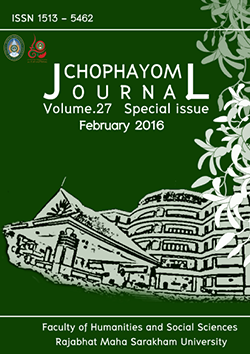Innovative Knowledge Destination Model for Sustainable Competitive Advantage.
Abstract
The purpose of this research was to analyze the trend of cultural intelligence in ASEAN
Economic Community and then to synthesize such trend to be the innovative knowledge
destination model in order to attain sustainable competitive advantage to creative tourism of
Thailand. This research is a qualitative research using opinions of experts through Delphi
technique collecting opinions of academicians who concern in cultural intelligence and tourism,
and creative tourism marketers from public and private sector, including both local and ASEAN
Economic Community. The sample consisted of 17 persons based on Thomas T. Macmillan
criteria with standard error level of 0.04. The research applied conceptual research framework
of Hopeken (2013); Chox Leung (2002); Olmedax Sheldon (2002); M. Fuchs T. et al. (2010); G.
Richards and J. Wilson (2006). From 3-round Delphi Technique,the result outcome will be used
to design a guideline of strategic innovative knowledge destination model, consisting 4 dimensions
of management of knowledge quality, quality of utility management, management of knowledge
transferring to customers /tourists, and training management for tourism service.The findings shall
be used for designing curriculum of cultural intelligence for creative tourism entrepreneurs to
gain the competitive advantage in ASEAN Economic Community and be further submitted as a
guideline for national strategic competitive advantage to Thailand.






